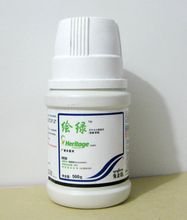
YINGKOU SANZHENG ORGANIC CHEMICAL CO., LTD. LIAONING CHINA
Address: No. 51, Xinxinli, Daqing Road, Zhanqian District, Yingkou City, Liaoning, China電話(huà):0417-3638868
Fax: 0417-3638868
Email: ykszgs@sohu.com
Zip code: 115001
URL::www.906038.com
1. Selective herbicides and pesticide manufacturers
Herbicides are selective among different plants. Pesticides can poison or kill weeds without harming crops, or even poison certain weeds without harming crops and other weeds. Herbicides that act selectively are called selective herbicides.
In layman's terms, it is a herbicide that can be used on certain crops to kill some of the weeds. For example, quinquine can be used in peanuts, soybeans, tomatoes and other broad-leaved crops to control grass weeds such as setaria, but cannot be used in corn fields, otherwise it will kill corn as grass weeds, and it cannot kill broad-leaved crops. Leaf weed. Another example is that atrazine can be used to control broad-leaved weeds and some grass weeds in corn fields, and it does not harm corn even if the dosage is higher. This property of Jingquine and Atrazine is called selectivity.

However, the amount of selective is required. If the amount of atrazine is increased to a certain level, not only the corn can be easily killed, but it can even kill a large area of bushes.
2, biocidal herbicide.
This herbicide lacks or has little selectivity for plants, regardless of the grass and seedlings, "kill it when you see it green." Biocidal herbicides can kill all plants. For example, paraquat kills when it sees green. It does not distinguish between crops and weeds, nor does it distinguish the types of weeds. Then increase the dosage of atrazine to kill the bushes as described above, at this time the atrazine becomes a biocide herbicide.